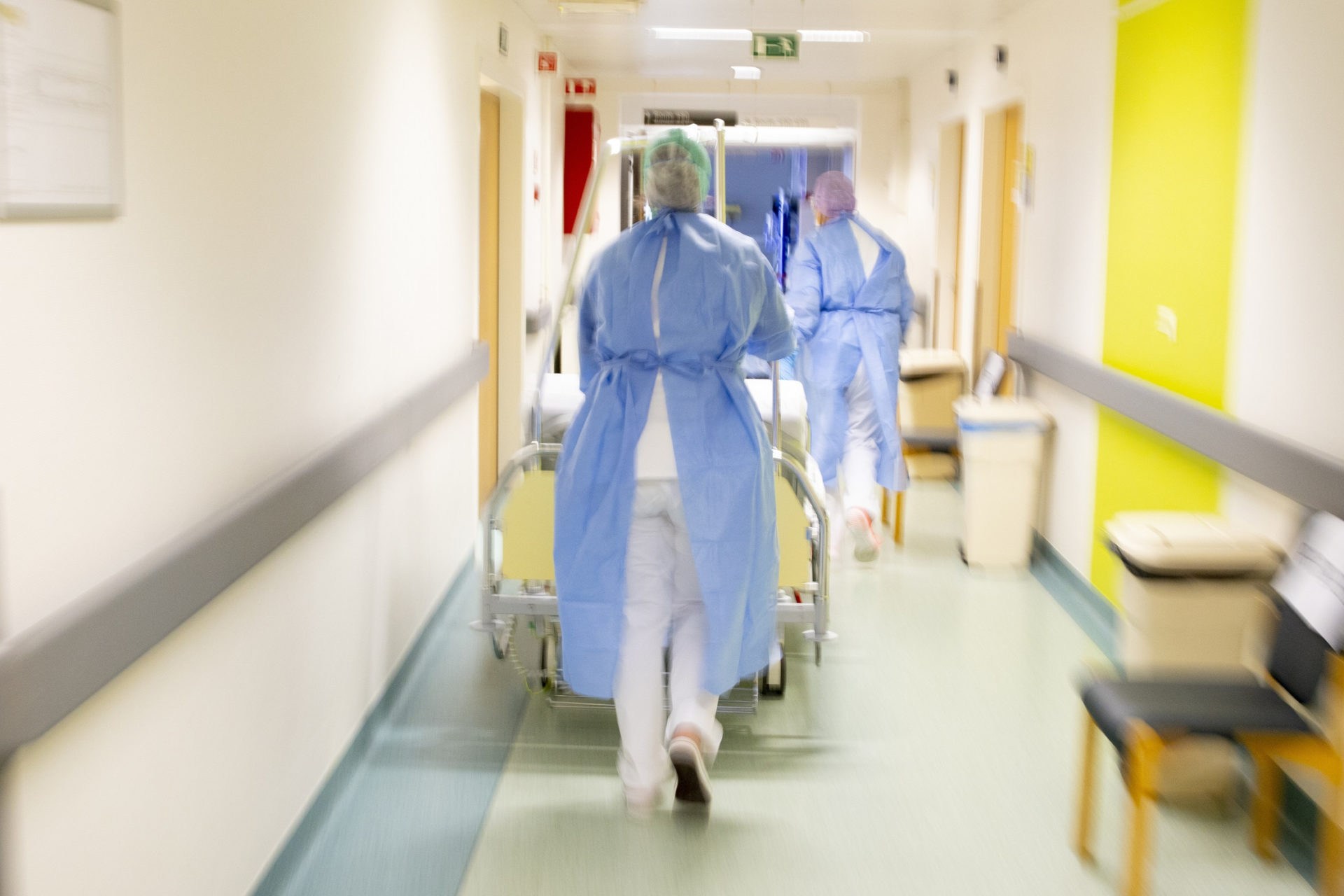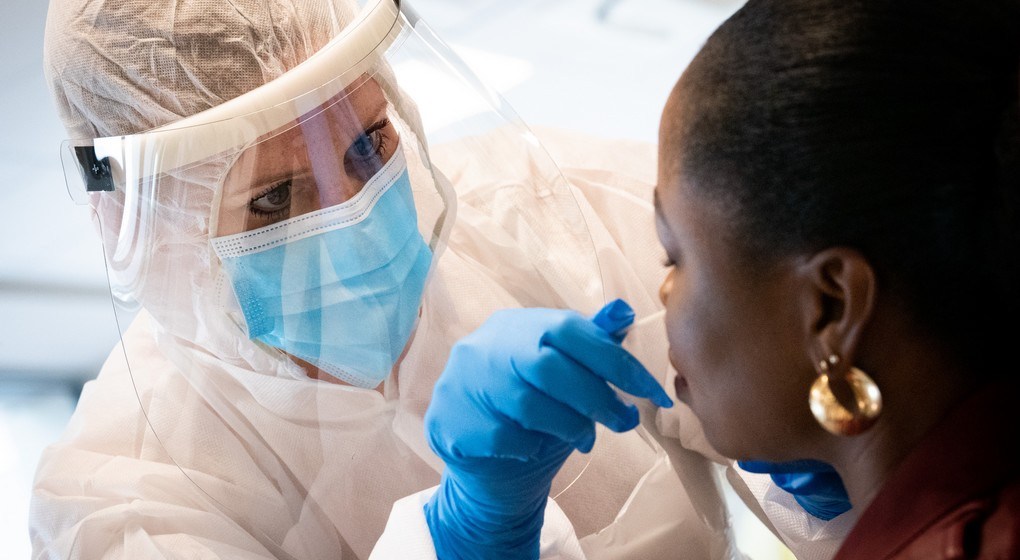The number of coronavirus infections continues to rise in Belgium and has almost surpassed an average of 10,000 new cases every day.
Between 12 and 18 March, an average of 9,953 new coronavirus infections were identified every day, a 25% increase on the previous seven days, according to the figures published by the Sciensano Public Health Institute on Tuesday morning.
The Omicron BA.2 variant is accounting for almost 81.1% of all cases, while the Delta variant has completely disappeared in the country.
The average number of PCR tests taken per day in the same period inclined by 8% to 37,622.9. The positivity rate now sits at 28.4%, meaning more than almost three out of ten tests has a positive result.
After rising slightly, the number of Covid-19 deaths seems to be decreasing again. During the same week, an average of 16.7 Covid-19 patients died on a daily basis. The total number of deaths in Belgium since the start of the pandemic amounts to 30,575.
This figure also includes people who died of another cause of death, but who happened to be infected, meaning they are an overestimate of the deaths caused by the virus.
With the coronavirus figures rising sharply following Belgium's lifting of most restrictions, infectious disease expert and chair of the GEMS expert group Erike Vlieghe warned that caution remains advised. "Especially, the number of cases among people over 65 is increasing. That worries us.”
Hospitalisations increasing
Between 15 and 21 March, an average of 169.7 patients suffering from Covid-19 were admitted to hospitals each day – an increase of 11% on the seven days previous.
This number reflects how many people end up in hospital specifically because of the virus, not those who are admitted with another condition and then test positive for the coronavirus.

Credit: UZ Brussel
On Monday, a total of 2,427 people were in Belgian hospitals due to an infection, 105 more than on Sunday, of whom 179 were being treated in intensive care (+4). This number covers all patients who tested positive for Covid-19, including those who were first admitted with a different condition.
Since the end of February, the number of people aged over 80 being hospitalised has decreased slightly, while a rise has been recorded in those aged 40 to 59.
Reproduction rate, incidence, and total vaccinations
The reproduction rate (Rt) now sits at 1.04. This figure represents the average number of people that contract the virus from each infected person. When it is above 1, it means that the epidemic is gaining ground in Belgium.
The incidence (the number of new cases per 100,000 inhabitants) has once again started to rise rapidly and now sits at 1,088 over the past 14 days.
Related News
- 'We must remain careful,' warns Erika Vlieghe
- Belgium's hoped-for herd immunity against Covid 'not possible,' says expert
As of Saturday, more than 9.11 million people are fully vaccinated – 89% of Belgium's adult population and 79% of the total population.
Meanwhile, almost 7.08 million people have received a booster dose of a coronavirus vaccine, representing 75% of over-18s and 61% of the entire population. The majority of adults should have had the opportunity to get a booster dose by March 2022.
While neighbouring France and the UK are already giving people a fourth vaccine dose, Belgium has said it will not extend fourth doses beyond those with reduced immunity for the time being as there is too little scientific evidence to justify a fourth shot for the general population.

